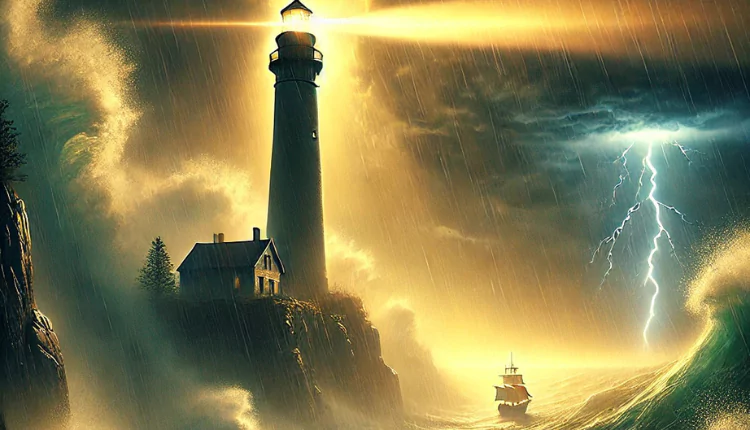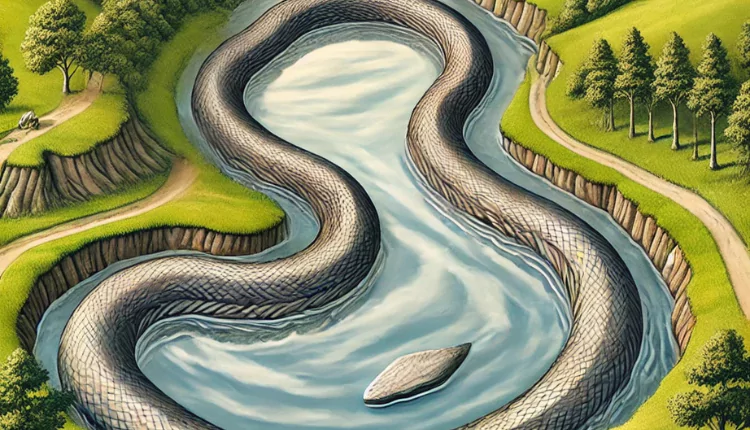On a dark, storm-tossed night in the Arctic, a ship led by Captain Robert Walton happened upon a strange figure moving across the ice. The crew pulled a near-dead man from the frozen wasteland, nursing him back to health. His name was Victor Frankenstein, and in Walton, he found a rare ear for the haunting tale that burned inside him.
Victor began by recalling his childhood in Geneva, where he’d grown up with a fascination for the mysteries of science. Even as a boy, he was obsessed with the idea of harnessing life’s secrets: he delved into old texts and obscure theories, studying the forbidden arts of alchemy and the natural sciences. His family saw it as a harmless passion, a passing curiosity, but for Victor, it was a calling.
Years later, as a young man, Victor left Geneva to attend the University of Ingolstadt. There, he became consumed by the ambition to do what no one else had dared—to unlock the mysteries of life itself. His studies grew darker and more intense and pulled him further into isolation. By day, he was a diligent student; by night, he gathered body parts in secret, piecing together a form that was almost human.
At last, one stormy night, his work reached a fever pitch. With trembling hands, Victor connected his creation to the electric apparatus he’d built. The air filled with a blinding flash of light as his creature stirred. But when its eyes opened, gazing back at him, Victor was horrified. The being was monstrous, towering and grotesque, its appearance a twisted reflection of the humanity it longed to possess. Terrified by what he’d done, Victor fled, leaving his creation alone, abandoned in a world it did not understand.
Victor fell gravely ill, and in his delirium, he tried to forget what he’d unleashed. Thus, seeking comfort, he returned to Geneva, to his family and his beloved Elizabeth. On the other hand, the creature had not forgotten him. It was lonely and felt like an outcast in society; learning of its creator’s name and whereabouts, it had started looking for Victor, seeking vengeance on the man who had brought it into such a cruel, insensitive world.
Soon, the impending tragedy struck: Victor’s youngest brother, William, was found murdered. Although the family’s servant Justine was falsely accused and executed for the crime, Victor was very well aware it was his creation taking revenge. Hence, wracked with guilt, Victor confronted the creature in a remote mountain pass where he heard all about his creation’s suffering – the terror and scorn it endured everywhere it went. Finally, it begged Victor for a companion, someone like it; someone who would accept it; someone who would understand it; and someone who would share in its isolation.
Victor agreed, initially, out of a mix of fear and pity, but as he began creating a second creature, he recoiled from the consequences: a pair of such beings might unleash unimaginable horrors on the world. So, in a fit of panic and dread, he destroyed his work and shattered any hope his creation had for companionship.
Enraged and heartbroken, the creature vowed to destroy everything Victor held dear. Soon, Victor’s closest friend, Henry Clerval, was found dead, another victim of the creature’s wrath. Grief piled upon grief, and finally, even Elizabeth, his beloved, was murdered on the very night of their wedding. Victor’s life, once filled with promise, lay in ruins, consumed by the very force he had sought to control.
With nothing left, Victor swore vengeance, pursuing his creation across Europe and eventually into the Arctic wastes, where Captain Walton found him. Exhausted and near death, Victor finished his tale, warning Walton of the perils of unchecked ambition, of reaching beyond human limits.
Soon after, Victor died, a broken man. But that night, Walton heard a strange noise coming from Victor’s quarters. Entering the room, he saw the creature standing over Victor’s body, mourning the death of its creator. Despite all the hatred and bitterness, the creature confessed that it felt an inescapable bond to Victor. With its creator gone, it felt no purpose to continue living. Resolving to end its own suffering, the creature left, vanishing into the Arctic darkness, determined to die alone, bringing an end to its tragic existence.
Walton, shaken by the tale, turned his ship back toward home, abandoning his own dangerous ambitions. For the lesson of Frankenstein and his creation had become clear: to pursue knowledge without humility, and to tamper with forces beyond our grasp, invites consequences as terrible as they are irreversible.
Want to revisit the golden age of storytelling where every tale had a purpose?
Delve into our collection of Classic Storybook Tales on Storyious, where each page holds a blend of nostalgia, charm, and moral insight. These timeless, classic stories feature beloved characters, rich narratives, and important lessons that continue to resonate today. From fables that shaped cultures to folk stories told for centuries, this collection revives the beauty of classic literature stories with messages that matter. Not only this, these stories are the perfect for sparking conversations or simply enjoying a thoughtful read, reminding us that good storytelling never goes out of style. So, start reading and let the old wisdom light the way.







Comments